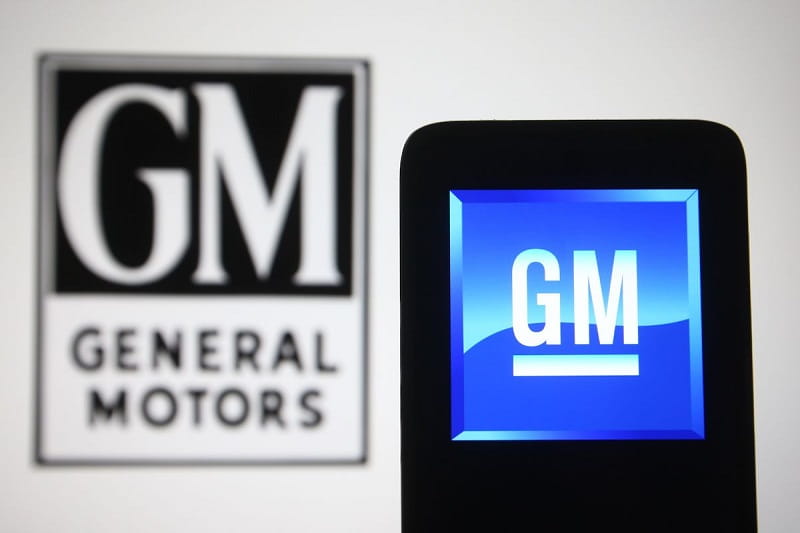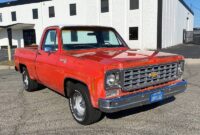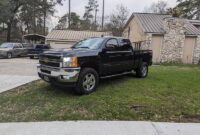Chevy Shake – Class Action Lawsuits Against General Motors Over the Chevrolet Shake, catdumptruck.com | The Chevrolet Shake has been making the news lately, with over 6 million searches showing up on Google.
Many consumers have been panicked by the vibration in their car and are filing class action lawsuits against GM.
But is there a real reason behind the shake? Is it caused by the aluminum driveshaft? And what can you do to fix it? This article will discuss the cause and symptoms of the Chevrolet shake and what you can expect to pay if you notice the shaking while driving.
Chevy Shake – Class Action Lawsuits Against General Motors Over the Chevrolet Shake
Class-action Lawsuit Filed Against GM
The alleged causes of the Chevrolet shake problem are largely unknown. However, a class-action lawsuit has been filed against General Motors over the problem. Kim Bostick and Branden Jamison purchased or leased a vehicle that suffered from the problem.
The powertrain, which is an integral part of the driveline, is defective. When it fails, the car will shake violently at high speeds. The problem is so widespread that GM should have realized the danger and taken the proper measures to fix the problem.
In its defense, GM is disputing the claims made by the plaintiff. It argues that it is a defect in the steel drive shafts used in many Chevrolet models. However, GM says it knows of the problem and issued technical service bulletins related to the problem.
This is one of the many reasons why a class-action lawsuit is being filed against GM. GM’s attorneys have denied the allegations and are awaiting trial.
Plaintiffs in the class-action lawsuit claim that GM had knowledge of the Chevrolet shake defect, but chose to hide it from consumers. Consequently, they say, GM was putting profits ahead of their customers’ safety.
Without knowing about the issue, they would not have purchased or leased a car that was prone to jerking, surging, and lurching. This lawsuit is based on the claim that GM knew about the problem for years and failed to address the issue in newer vehicles.
Although GM did acknowledge the issue, it has not acted accordingly. Instead, it has issued multiple Technical Service Bulletins stating how to fix the problem, but they have yet to issue any recalls.
A class-action lawsuit has been filed against the company for this, but there are no known recalls. Despite numerous warnings, GM has done little to resolve the problem and has been minimally involved.
Anyone who has experienced the Chevrolet shake may qualify for a class-action lawsuit. However, a class-action lawsuit has many limitations. First, the lawsuit can cover a vast variety of vehicle models, including the most expensive models.
Moreover, if the lawsuit proceeds successfully, the winnings will be divided among all of the participants in the class-action, while a traditional lawsuit would benefit only the plaintiff.
Aluminum Driveshafts Blamed For Chevy Shake
A lawsuit alleging that aluminum driveshafts are responsible for the infamous Chevy shake has made the issue public. The lawsuit alleges that owners replaced their aluminum driveshafts with steel ones and noticed no longer shaking while driving.
Despite General Motors’ acknowledgement of the issue and the fact that the company has issued several technical service bulletins related to the problem, the carmaker still failed to remedy the problem.
This lawsuit was filed after two GM consumers, Kim Bostick and Branden Jamison, began reporting symptoms of the dreaded “Chevy shake.” They alleged that their vehicles were sold with faulty powertrains. According to the class-action suit, the powertrain of the cars, specifically the driveline, was to blame for the infamous Chevy shake.
The defective drivelines caused the car to shake violently, sometimes to the point of disintegrating. The driveline is responsible for transferring power to the wheels and the deterioration of aluminum driveshafts causes the vehicle to shake violently, often causing it to divert away from the road.
In 2015, General Motors acknowledged that the problem was a looming issue for Chevrolet owners, and issued several Technical Service Bulletins for its eight-speed transmission. While these bulletins provided some short-term fixes, no recalls have been issued. But the faulty transmission is one of the primary causes of “Chevy shake.”
Although the company has issued numerous Technical Service Bulletins addressing the problem, there have been no recalls. Instead, GM has sought to shield its dealers from this problem by claiming that the metal driveshafts had caused the problem.
The manufacturer of the affected vehicles has not yet issued a recall for the aluminum driveshafts, and has not acknowledged that the problem has been caused by the driveshafts.
Although the issue affects only a small percentage of vehicles, the Chevy Shake can affect any current-generation GM vehicle. While it’s hard to pinpoint a specific cause, Chevrolet owners are trying a variety of remedies. Clever dealers are reattaching roof bows in certain models.
They are also looking into Magnetic Ride Control shocks, which could be the cause of Chevy shake. While this is only a partial list of solutions, it is still a significant problem that deserves to be addressed as soon as possible.
Symptoms of Chevy Shake
Thousands of people are looking for the cause of the infamous Chevy shake. This problem has caused a great deal of panic in GM consumers. Many complain that their vehicles shake so violently that they lose control of the vehicle. It has also resulted in class-action lawsuits filed against GM. The best way to identify if your Chevy is suffering from the Chevy shake is to look for these symptoms in your car.
The symptom of Chevy shake may be accompanied by a number of other symptoms. Those who have a heightened sense of hearing or smell may experience a whirring sound or buzzing sensation. These can be caused by a malfunctioning engine. In addition to causing physical distress, Chevy shake can cause a loss of concentration, wooziness, or even loss of control. In some cases, this condition may lead to an accident or even life-threatening situations.
Other symptoms of Chevy shake include general shuddering, hesitation while accelerating, and unexplained warning lights. The symptoms of Chevy shake can be difficult to pinpoint but they can be accompanied by other symptoms, such as slipping between gears and grinding noises in the engine. When a vehicle experiences a Chevy shake, it’s not just the engine; it’s the whole car. When this happens, the transmission can malfunction and cause a car to shake violently.
While the Chevrolet shake was first reported in a news report by Action 9, the problem continues to plague drivers. At last count, 280 drivers have complained about the problem in their cars. One such driver, Ryan Helton, owns a GMC Sierra 1500 and reported the problem to GM. The carmaker has refused to acknowledge this issue. In the meantime, the problem has risen to the level of a class-action lawsuit.
Another cause of Chevy shake is brake problems. While the Chevrolet shake is not a common problem, the symptoms may be a warning sign of a bigger problem. Your car’s brakes may need to be replaced. If your brakes are the culprit, your vehicle’s steering wheel may be shaken too. A misaligned brake caliper could also be the source of the problem. Moreover, bad brake pads and rotors can cause your vehicle to shake when you apply the brakes.
Cost of Repairs
A recent class-action lawsuit alleges that General Motors (GM) sold millions of cars with defective drive shafts and intended to hide the defect from consumers. The defective driveshafts, which are usually made of aluminum, can result in violent shaking and even divert the car from the road. In spite of a class-action lawsuit, GM has refused to recall affected cars or provide drivers with a reimbursement for the cost of replacing the driveshafts.
The issue is caused by an aluminum driveshaft, which is custom-made for a Chevrolet. Chevrolet recalls have not covered the cost of repairing a Chevy shake, but a competent mechanic can diagnose and repair the problem. A mechanic should only recommend a replacement if it is necessary. Chevrolet has received many complaints from consumers complaining of shakes. If you suspect your Chevy is experiencing these shakes, you should take it in for repairs.
While the car itself may be at fault, a shake in the passenger compartment can also be a result of wind buffeting. This occurs when the vehicle is at high speeds and is caused by body pressure booming. While the noise is distracting, it’s often easily corrected by opening another window. If this doesn’t work, you can try closing all of the windows and the shakes will disappear. If you want to prevent the shaking from returning, consider replacing the faulty tires.
A Chevy shake lawsuit can cost a lot of money. A custom steel driveshaft will be required to fix the problem. While this may seem like an expensive proposition, you should remember that it’s unlikely that GM will reimburse you for your expenses. Besides, it’s hard to pinpoint which Chevrolet models are the most affected. A lawsuit will provide you with a better picture of what the problem is and how to fix it.
What is the P0172 Chevy Equinox?
A Chevrolet shake may be caused by a malfunction in the aluminum driveshaft or a transmission. This can result in a violent shaking, slipping between gears, and hesitation when accelerating. GM is aware of the problem and has issued several bulletins and warnings. If your vehicle has a shake, consult with your dealership to fix it. There’s a high chance that your car’s shocks are the culprit.
- Flatbed Ford Truck for Sale: Finding Your Ideal Truck - April 27, 2025
- Dump Truck Size in Meters: A Comprehensive Guide - April 26, 2025
- Dump Truck Size in Yards: A Complete Guide - April 26, 2025







